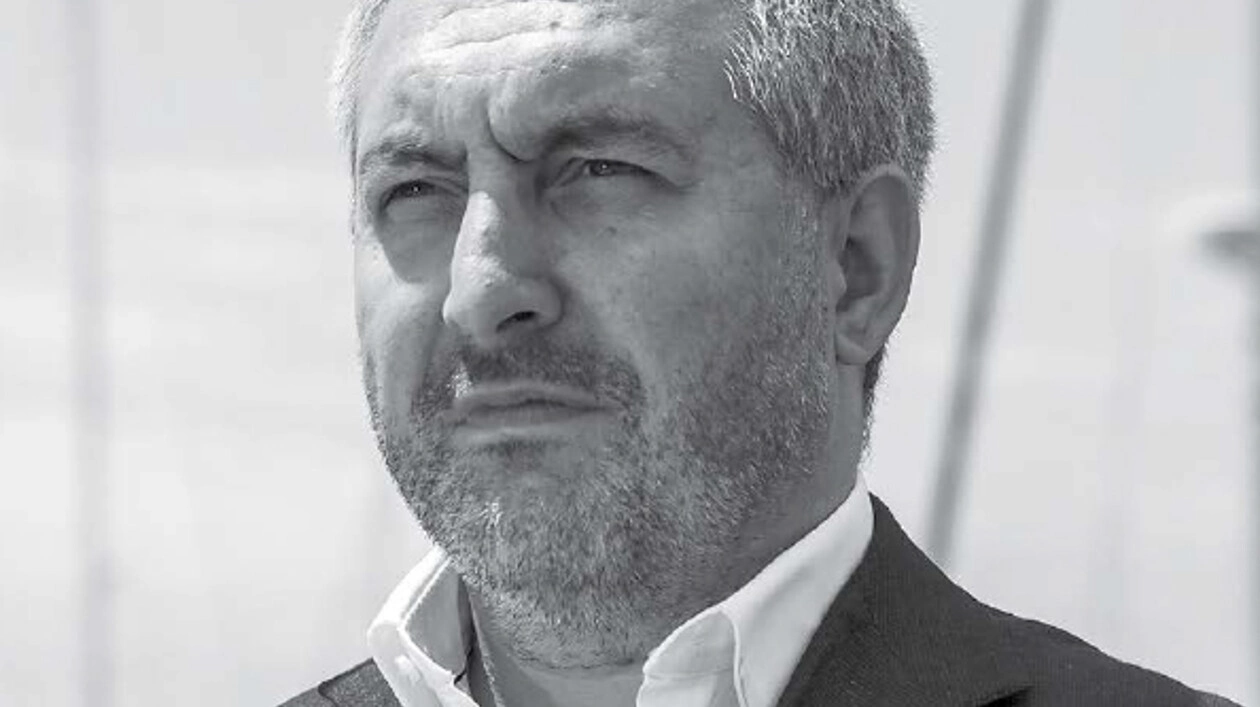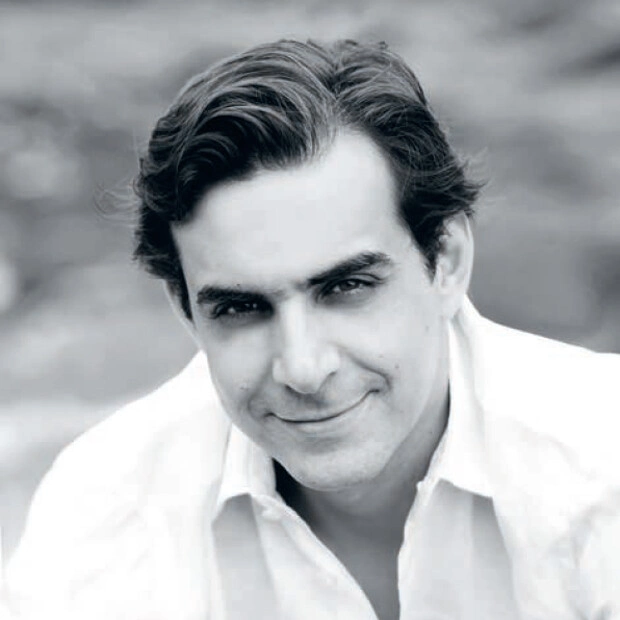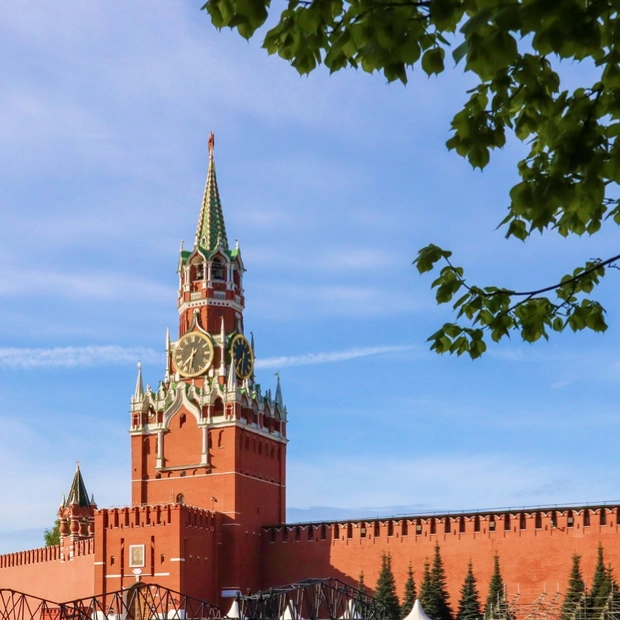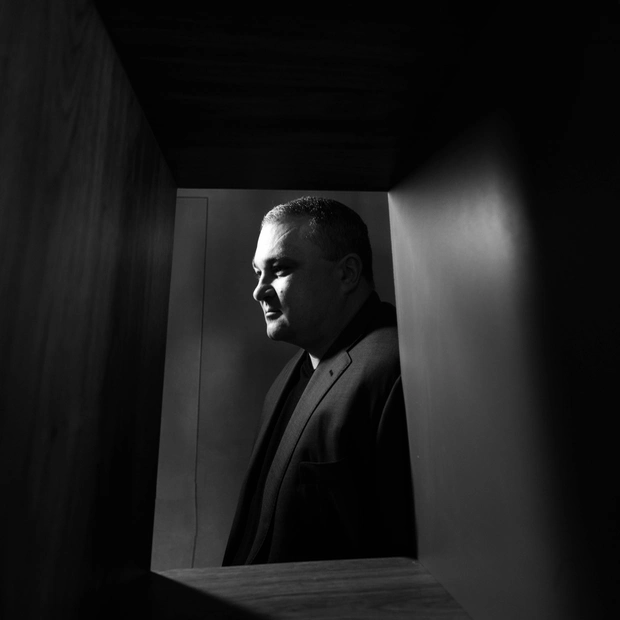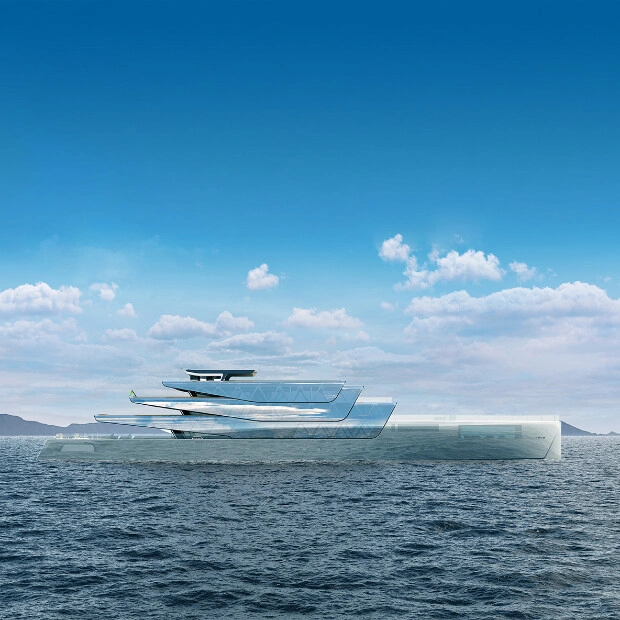Over the course of a single day, water, as it comes into contact with other elements, can be both calm and violent. It may be cold by morning; at night, it can remain cool for a long time — reminiscent, strangely enough, of human nature. Next to the element of water, a person can feel small and helpless. In its presence, we are powerfully reminded how much growing we still have to do. But, most of the time, almost without stirring at all, it allows us simply to admire its greatness. Nonetheless, the power of water is capable of destroying stones, but it’s a slow process. As for people, so is the process of "squeezing out the slave", which, for Dmitry Solopov, the owner and founder the PROGRESS PR agency, is the greatest challenge of life.
If you want to develop as a person, you simply need to relate to yourself critically. Every day, squeeze out a drop of greed, cowardice, and cruelty. It’s the hardest thing there is. There are, unfortunately, many inhuman people among us: people who lie, betray, steal, kill if not physically, then morally. They are, at the same time, corpses of sorts, the "dead souls" that Nikolai Vasilievich Gogol long ago wrote about. It’s actually very easy to become a creature that is unworthy of bearing the title of personhood. To remain human, on the other hand — that’s a great effort, a constant struggle.
Life goes on as usual, with some people continually reassuring themselves, saying everything is the same as it should be. They admit that no, they haven’t read that book, but that’s okay, they’re smart. So they’ve deceived someone — well, that’s okay, God will grant forgiveness. Being honest with yourself and with others is difficult, but it’s something you need to strive to do. Of course, people are who they are. And they’re not going to become completely different people in a single day. Human development requires daily, monotonous work. It’s slow, tedious, and pretty thankless, but it’s necessary. In one of his letters, Anton Pavlovich Chekhov came up with a phrase that has since become a saying: "to squeeze out the slave drop by drop". Our own inner slave is the supreme challenge each of us must face. The slave of greed, of cowardice, and of cruelty. It’s something you must squeeze out every day. Chekhov, himself having a contradictory and ambiguous nature, deployed this thought in his life and his work. And he has bequeathed to us all the task of squeezing the slaves out of ourselves.
One could say that literature is a condensed experience of humanity, when it comes to the domain of feelings and experiences. If we read carefully, we can often find answers to seemingly unsolvable questions. Almost any life situation can be found reflected in literature; it’s as if literature is providing us with instructions on how to go through this or that situation, and on which feelings and thoughts to take away from it. And every author is either seeking out that take-away or has already found it and wants to show it to others.
And so it happened, absolutely spontaneously, that, at forty, I suddenly began to write poetry. I couldn’t say why poetry first came to me, but I can say why it has continued to. I showed a couple of my works to Dima [Dmitry] Bykov, who concluded: "Good poetry." I had initially thought that his tone was one of mockery, but then he followed up the sentence with an offer to put those "good poems" into print.
Literature and poetry, which I have always loved, have often helped me break down the impasses I’ve met due to life's challenges. And, by now, I most likely have some of my own "instructions" to share. Any text is a conversation with the reader, and if the text is written well, then the reader is able to perceive what was written on a deep level of consciousness. But there are things in the world that can be learned exclusively through one’s own experience, which is why each of us is tempered like no one else. I, for one, was influenced by yachting.
Yachting greatly changes a person. When you find yourself on the open ocean, you develop a feeling of complete defenselessness, helplessness in comparison with nature. And fighting for survival is exactly the same as it was for our ancestors fifty thousand years ago — little has changed.
Any ship, sooner or later, is faced with a dangerous situation. These dangers are always difficult to predict, and seldom are there instructions that can accurately describe how to act in order to save your life in such situations. Once you go onto a yacht, you find yourself at the power of an environment that is hostile to you. It isn’t so different, in fact, from how it goes in aviation. For those who work in the navy or aviation, the goal isn’t only to swim or fly a certain distance. Both pilots and captains, when conducting flights and sea voyages, prove to themselves time and time again that they can exist in the elements that weren’t created for them. Today, we do have a developed rescue system, and GPS navigation, but a person is still at the complete mercy of the sea. It doesn’t differ so greatly from Columbus, who went on his voyage in the 15th century. Only in the movies does a helicopter arrive immediately after a ship crashes, miraculously saving the main character’s life. In reality, it doesn’t go anything like that. A yacht can break down, start to sink, catch fire. These instances prove to be a serious test. If "squeezing the slave out" is something abstract, and many still argue about what exactly Chekhov meant by that phrase, then everything in the ocean is quite clear: from a ten metre tall tree, to the wind breaking the mast. Water can washed onto the deck, the abyss below can kill a man. Anything can happen. That’s a scary reality for us all. Only fools are unafraid of the sea.
There’s one incident in my life that was not associated with danger, but which left a bright trace in my mind. We were on our way away from Perpignan. The yacht was sailing calmly, the weather was fine. Six hours later, we were somewhere between France and Spain. I looked at the GPS and saw that there wasn’t a single other living soul within a hundred kilometres of us. And it seemed as though we were in the very middle of Europe. Going from Perpignan to Sardinia, the route was animated and lively. Then, it fully hit me, the boundlessness of the ocean, a domain that continues to be beyond the control of man. If anything terrible happened to us, it would take a day or two for help to arrive. The revelation absolutely amazed me. I felt that I was somehow beginning to understand nature. In the cities, we live either in apartments, where there are neighbours on the other side of almost every wall, or in private houses, which are also surrounded by neighbours. There, on the ocean, there was just silence, empti-ness, stretching out from our yacht for a hundred kilometres in every direction. For people who are immersed in civilisation, it's hard to even imagine. But, there, I felt it for myself.
The element of water nurtures in us courage and humility before the eyes of fate. It eliminates fear of death. And death can, in fact, await a ship anywhere — no matter where it’s going, a ship is sure to encounter unavoidable obstacles along its path. Our own existence is just as spontaneous: no matter how a person goes about life, no matter what path they take, no matter which way the wind hits them, life is a challenge. It’s a struggle, and one that we need to come out of with dignity. So that, when we take our last breaths, we do so without a single drop of greed, cowardice, or cruelty.
